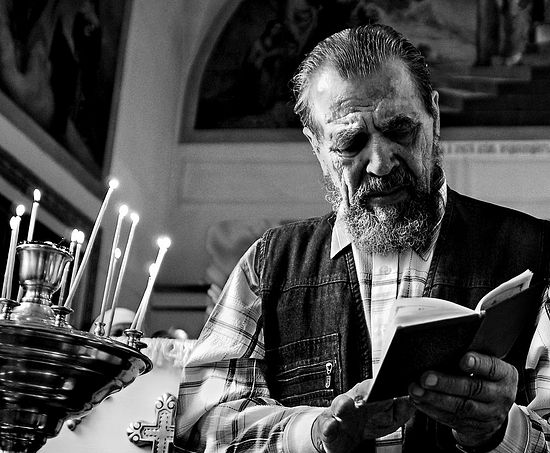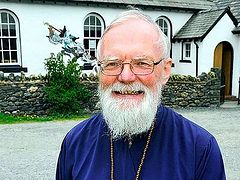Protestants often reference 1 John 5:13, These things I have written to you who believe in the name of the Son of God, that you may know that you have eternal life. This is a verse that they claim as a basis for having complete assurance of their salvation. What is the Orthodox teaching on this passage? Fr. John Whiteford discusses the concept of assured salvation.
The question here is what does it mean to know that you have eternal life? Do we have to know that there is nothing we could possibly do to lose our salvation in order to know that we have eternal life?
This sort of thinking is something that has emerged from a strange Protestant mix of Arminianism and Calvinism. Calvinism teaches that God has decreed before all eternity who will be saved and who will be damned, and so obviously, if you are among the elect, there is nothing you could possibly do to become unelected. But a Calvinist would say that those who are elect will show the fruits of their election at some point before they die, and begin to live like Christians. Arminians, on the other hand deny that God determines who will be saved, and that the offer of salvation is open to everyone, and that furthermore, one can fall away from God and lose their salvation. Most Baptists are partially Calvinistic and partially Arminian—they believe that salvation is open to all, but that once who are saved, you cannot lose your salvation. You could “steal a horse and ride it into heaven.” And for those who have bought into this perspective, the idea of eternal security is something they believe in very strongly. And in fact, they seem to have a hard time understanding how anyone could have any confidence in their salvation if they did not have the absolute assurance that they could not possibly lose their salvation.
I have known my wife since I was 17, and we have been married for more than 27 years. I feel very secure in our relationship, but I am quite certain that there are things I could do to destroy that relationship. I am not in fear of that happening, however, because I have no intention of doing any of those things. So I know that my wife loves me, but I also respect her, and make sure that I treat her with love and respect so as to maintain that relationship. Our relationship with God is similar. We know God loves us, but we also know that if we turn our back on Him, we will not remain in a right relationship with Him. All we need to do, however, is to not do that.
St. Nicholas Cabasilas explains how we are saved in our cooperation with God this way:
“There is an element which derives from God, and another which derives from our own zeal. The one is entirely His work, the other involves striving on our part. However, the latter is our contribution only to the extent that we submit to His grace and do not surrender the treasure nor extinguish the torch when it has been lighted. By this I mean that we contribute nothing which is either hostile to the life or produces death. It is to this that all human good and every virtue leads, that no one should draw the sword against himself, nor flee from happiness, nor toss the crowns of victory from off his head” (The Life in Christ, trans. by Carmino J. DeCatanzaro, (Crestwood, NY: St. Vladimir’s Seminary Press, 1974), pp. 48-49).
Countless passages of Scripture could be cited to demonstrate that it is possible for us to lose our salvation, but the following words of the Prophet Ezekiel are a fairly clear example:
The soul that sinneth, it shall die. The son shall not bear the iniquity of the father, neither shall the father bear the iniquity of the son: the righteousness of the righteous shall be upon him, and the wickedness of the wicked shall be upon him. But if the wicked will turn from all his sins that he hath committed, and keep all my statutes, and do that which is lawful and right, he shall surely live, he shall not die. All his transgressions that he hath committed, they shall not be mentioned unto him: in his righteousness that he hath done he shall live. Have I any pleasure at all that the wicked should die? saith the Lord God: and not that he should return from his ways, and live? But when the righteous turneth away from his righteousness, and committeth iniquity, and doeth according to all the abominations that the wicked man doeth, shall he live? All his righteousness that he hath done shall not be mentioned: in his trespass that he hath trespassed, and in his sin that he hath sinned, in them shall he die (Ezekiel 18:20-24).





Because we are ensouled bodies, the Apostolic witness never divides body from soul; outward and bodily from inward and spiritual .